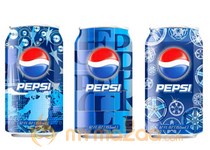Recent testing by Consumer Reports has revealed that cans of Pepsi One may contain high levels of a potential carcinogen called d 4-methylimidazole (4-MeI).
Under Proposition 65, the state of California mandates that any food or beverage that exposes people to more than 29 micrograms of 4-MeI per day must carry a health warning on its packaging.
Knowing that 4-MeI is often used in the artificial caramel coloring that gives soda its brown hue, Consumer Reports tested 81 cans and bottles of popular soft drinks purchased in New York and California between April and September 2013. The researchers then retested any brands that initially tested as containing over 29 micrograms of 4-MeI per can or bottle.
Both rounds of testing revealed that Pepsi One and another soft drink called Malta Goya contained more than 29 grams of 4-MeI per can or bottle.
Testing also showed that Coke, Diet Coke and Coke Zero contained less than 5 micrograms of 4-MeI, which Consumer Reports considered acceptable. Additionally, Sprite showed no significant levels of the chemical.
When asked to comment, PepsiCo told Consumer Reports that California’s Proposition 65 requirement is based on exposure to 4-MeI per day – not per can. PepsiCo also cited data stating that most consumers drink less than a third of a 12-ounce can of soda per day.
“For that reason, they believe that Pepsi One does not require cancer-risk warning labels—even if the amount of 4-MeI in a single can exceeds 29 micrograms,” Consumer Reports said.
Consumer Reports has alerted the California Attorney General’s office of its findings. The organization also plans to petition the Food and Drug Administration (FDA), urging them to set federal standards for exposure to 4-MeI and to require manufacturers to list the type of artificial coloring used on their packaging.
According to Consumer Reports, the FDA has said it doesn’t believe current levels of 4-MeI from caramel coloring in food are a risk, but they are conducting their own testing.










